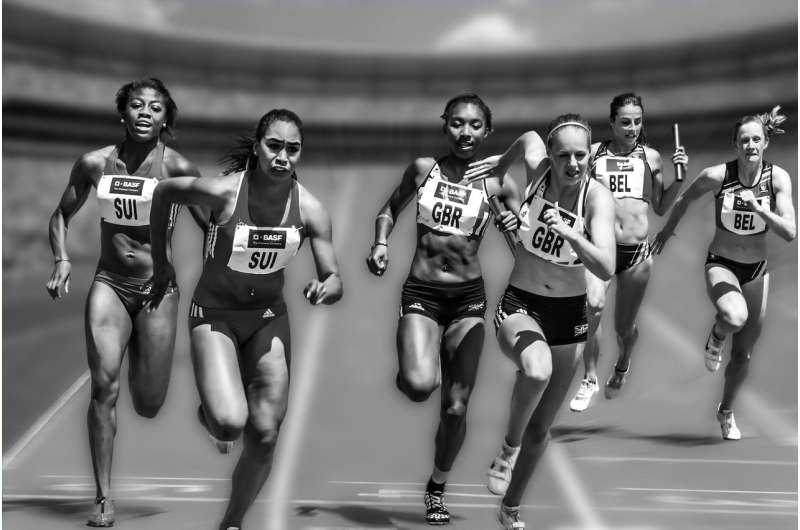This article has been reviewed according to Science X's editorial process and policies. Editors have highlighted the following attributes while ensuring the content's credibility:
fact-checked
peer-reviewed publication
trusted source
proofread
Athletes have no reason to be concerned by their COVID-19 vaccine this winter but timing matters

It is now almost a rule of thumb: As soon as an athlete falls to the ground with a sudden cardiac arrest, social media is awash with claims that COVID-19 vaccinations are to blame. This was the case with English footballer Charlie Wyke, cyclist Sonny Colbrelli and, most recently, with college basketballer, and son of LeBron, Bronny James.
In the view of Harald Jorstad, Sports Cardiologist at Amsterdam UMC, there is no evidence to support these claims, but timing of the vaccination can be structured to not negatively influence performance. This article is, today, published in the British Journal of Sports Medicine.
Jorstad, together with Joelle Daems, a Ph.D. candidate in Sports Cardiology at Amsterdam UMC, analyzed all of the existing literature on the topic and found no available evidence for an increase in sudden cardiac arrest or an increase in myocarditis in athletes after COVID-19 vaccination.
"We analyzed all of the studies we could find. Including one from Australia that included more than four million people. There researchers found that neither the rates of sudden cardiac arrest nor the rates of myocarditis as cause for cardiac arrest increased after vaccination. Myocarditis occurs most often in young people, especially in men."
In rare cases, COVID infection can cause myocarditis. And in even fewer cases, it can be a side effect of vaccination, and then the myocarditis is usually milder than after an infection. "Although athletes—due to their relatively young age—are at increased risk of developing myocarditis, we found no evidence in the studies that COVID-19 vaccination combined with intense exercise increased this risk even further,"' says Daems.
While athletes might be hesitant to receive the COVID-19 vaccination due to performance considerations, this Amsterdam UMC article highlights that the vaccine is generally well tolerated. Most athletes only experience mild short term side effects.
A study of 127 Olympic and Paralympic athletes demonstrated that only eight athletes were unable to train on the day of the vaccination, with seven of the eight resuming training the next day.
Small decrease in V02 Max
"Surprisingly, we did however see a small decrease in VO2 Max in one study," says Daems. A study from the Netherlands and Belgium demonstrated a small but statistically significant decrease in VO2 max seven days after vaccination. VO2 Max indicates how much oxygen an individual can consume during exercise and is typically seen as a measurement of endurance fitness.
"The size of this decrease was very small, and it seems unlikely that this decrease has any clinical relevance. Moreover, this effect could well be temporary," adds Daems
"This, combined with the previous findings, shows us that athletes have no reason to be concerned. Although those athletes who are considering a vaccine this winter should probably do it outside of major competition periods," concludes Jorstad.
More information: Cardiac sequelae in athletes following COVID-19 vaccination: evidence and misinformation, British Journal of Sports Medicine (2023). DOI: 10.1136/bjsports-2023-106847




















